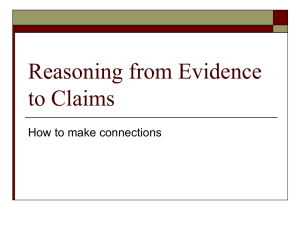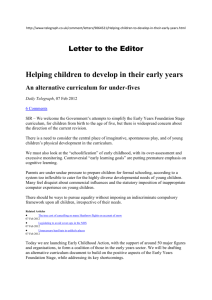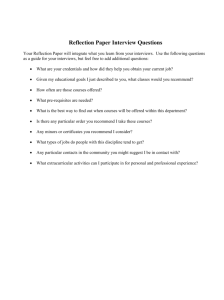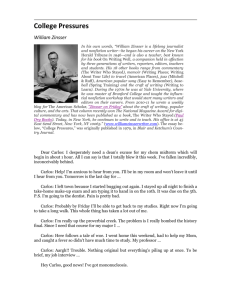Case Write-Up Tips: Economics & Professionalism
advertisement
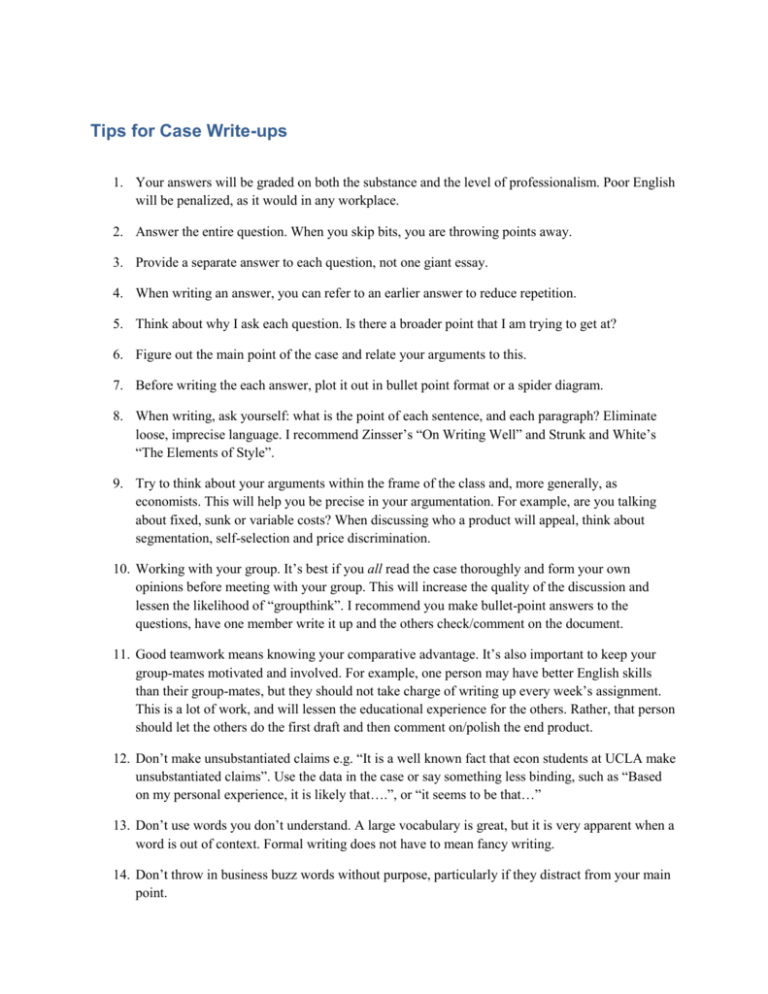
Tips for Case Write-ups 1. Your answers will be graded on both the substance and the level of professionalism. Poor English will be penalized, as it would in any workplace. 2. Answer the entire question. When you skip bits, you are throwing points away. 3. Provide a separate answer to each question, not one giant essay. 4. When writing an answer, you can refer to an earlier answer to reduce repetition. 5. Think about why I ask each question. Is there a broader point that I am trying to get at? 6. Figure out the main point of the case and relate your arguments to this. 7. Before writing the each answer, plot it out in bullet point format or a spider diagram. 8. When writing, ask yourself: what is the point of each sentence, and each paragraph? Eliminate loose, imprecise language. I recommend Zinsser’s “On Writing Well” and Strunk and White’s “The Elements of Style”. 9. Try to think about your arguments within the frame of the class and, more generally, as economists. This will help you be precise in your argumentation. For example, are you talking about fixed, sunk or variable costs? When discussing who a product will appeal, think about segmentation, self-selection and price discrimination. 10. Working with your group. It’s best if you all read the case thoroughly and form your own opinions before meeting with your group. This will increase the quality of the discussion and lessen the likelihood of “groupthink”. I recommend you make bullet-point answers to the questions, have one member write it up and the others check/comment on the document. 11. Good teamwork means knowing your comparative advantage. It’s also important to keep your group-mates motivated and involved. For example, one person may have better English skills than their group-mates, but they should not take charge of writing up every week’s assignment. This is a lot of work, and will lessen the educational experience for the others. Rather, that person should let the others do the first draft and then comment on/polish the end product. 12. Don’t make unsubstantiated claims e.g. “It is a well known fact that econ students at UCLA make unsubstantiated claims”. Use the data in the case or say something less binding, such as “Based on my personal experience, it is likely that….”, or “it seems to be that…” 13. Don’t use words you don’t understand. A large vocabulary is great, but it is very apparent when a word is out of context. Formal writing does not have to mean fancy writing. 14. Don’t throw in business buzz words without purpose, particularly if they distract from your main point.
